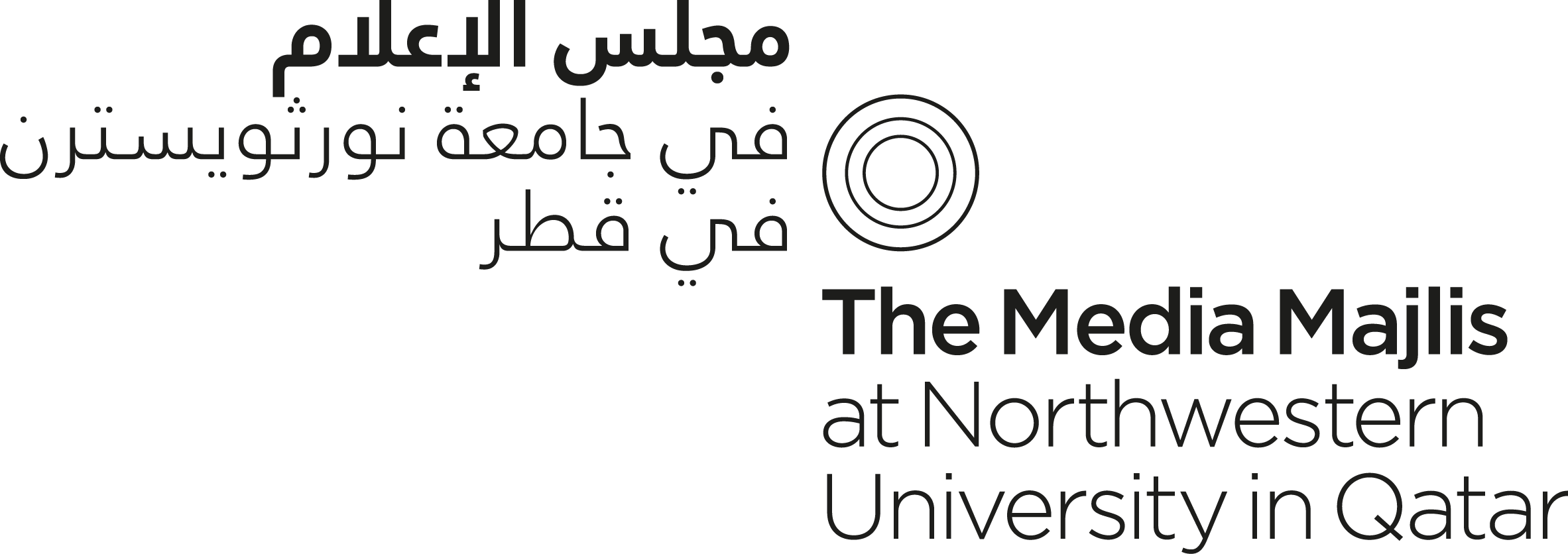
A video recording of this program is now available on the Explore Content section of this website.
Female filmmakers face issues around the world, but what is the experience of an Arab female filmmaker?
“There is this thing that you are not successful because you are a woman because of all the obstacles on the one hand and then on the other that you are successful because you are a woman. It’s never about the fact that we are just filmmakers trying to make work and we should be judged on our work only.”
Annemarie Jacir, December 2018
Rana Kazkaz, associate professor at Northwestern University in Qatar and a filmmaker, will host this exploration of being a female filmmaker in the Arab world today. Lively discussions of presumptions of gender bias and patriarchy, to subject matter, funding and public relations, self-critique and being role models, are all on the table. Female filmmakers make up a far higher percentage across Arab countries (approximately 50 percent) than in other parts of the world (5–12 percent in the US and Europe), yet internationally there are assumptions made about the social and cultural barriers which women cannot cross. This panel discussion featuring film directors and distributors will unpack and dispel many presumptions and will certainly add to your list of ‘films I must watch’.
This discussion will include questions from the audience, and has simultaneous translation.
-
Venue accessibility
-
Simultaneous translation
Simultaneous translation (Arabic/English) is provided for all programs.
-
Wheelchair accessibility
The Projection Theatre is fully wheelchair accessible and features multiple wheelchair spaces with unobstructed views of the stage and screen.
-
Sign Language interpretation
Sign Language interpretation (ASL and ArSL) may be requested for talks, discussions, lectures and tours. Please contact the museum well in advance of the program to discuss this service. You are welcome to bring an interpreter with you—please let us know ahead of time and we will ensure that appropriate seating is reserved. A program ticket does not need to be purchased for an interpreter providing prior notification of their attendance at a specific program is provided to the museum.
-
Wifi
Free wifi access is available in the building. On your mobile device, with wifi switched on, select Guest-NUQ-Majlis from the available services and accept the terms of service to connect.
-
-
Program credits
Rana Kazkaz
Rana Kazkaz (moderator) is an award-winning filmmaker and Assistant Professor of Communication in Residence at Northwestern University in Qatar. With a focus on Syrian stories, her producing, screenwriting and directing portfolio includes Mare Nostrum (2016) selected for over ninety international film festivals and winning more than thirty awards, the documentary Searching for the Translator (2016), Ham (2013), and Deaf Day (2011). Her forthcoming project, The Translator (2020), will be her first feature film, a project which has already won several development awards including the Arte Award at L’Atelier de la Cinefondation at the Cannes Film Festival in 2017.
Annemarie Jacir
Annemarie Jacir is a Palestinian film director, producer and screenwriter. She directed the first Palestinian short film Like Twenty Impossibles (2003), which entered the official competition selection at Cannes International Film Festival and went on to win multiple international awards. Since then she has written, directed and produced over sixteen films. Her feature film debut, Salt of this Sea premiered in the Un Certain Regard section at Cannes in 2008. All three of her feature films to date have been selected as Palestine’s entry for the Oscars. Jacir’s most recent film Wajib (2017) has won eighteen international awards.
Fatma Hassan Alremaihi
Fatma Hassan Alremaihi is CEO of Doha Film Institute (DFI), as well as the director of DFI’s Ajyal Youth Film Festival. She has been a part of DFI since 2009 starting as Cultural Advisor to the first edition of the Doha Tribeca Film Festival. Under her leadership the Institute established the Qatari Film Fund dedicated to funding Qatari youth and developing their talents, as well as the strategic partnership with The Giffoni Experience whose youth jury model continues to inform the Ajyal Youth Film Festival.
Colette Ghunim
Colette Ghunim is a videographer, editor and storyteller who co-directed the award-winning documentary The People’s Girls (2016), which examines the issue of sexual harassment in Egypt through a series of interviews and social experiments. This film has received awards and festival selections including the Arab Film Festival, We the People Film Festival in London, and Worldfest Houston. Her current film in development, Traces of Home, investigates her own origins alongside her parents, through the countries of Palestine and Mexico. Ghunim is a graduate of Northwestern University.
